by Mike Rosso
Above the din of motors, drive belts and grinders, Kris Gosar demonstrates the wheat milling process his father designed and built 40 years ago. In the final step of the process, the finely ground, brownish-white, Mountain Mama brand whole wheat flour is bagged and weighed on an aging, mechanical scale, then sealed and stacked atop other bags awaiting delivery to bakeries and stores around the region.
The local foods operation, located on the Gosars’ ranch, southwest of Mosca, Colorado and north of Monte Vista, in the middle of the San Luis Valley, is decidedly low-tech. There are no computers monitoring the motor speeds or coarseness and temperature of the milled flour; this is done with the human senses, employing sight, smell and sound, much like it was done a century ago. “Even when the weather changes, it can change the process a little bit,” said Kris.
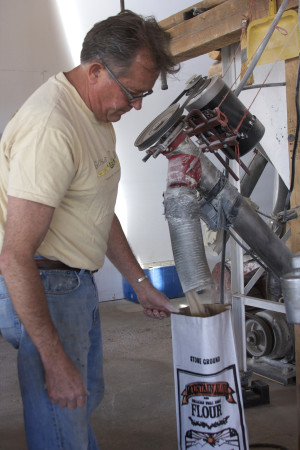
The milling equipment appears to have been patched together from random parts found in old barns and factories, and much of it has. But the final product, a whole-grain, organic and natural flour, can produce some of the finest breads you will ever taste. Pair them up with the old-style sausages produced next door by Kris’s son Klay, and you’ve got a tasty San Luis Valley sandwich with roots dating back to old Europe.
Kris Gosar’s great-grandfather Frank came to Jackson Hole, Wyoming from Yugoslavia in 1900, purchased a ranch, and ended up in Rock Springs, operating meat and grocery stores. His grandfather John continued in that business, as did Kris’s dad, Greg Gosar. Greg moved to Arizona and farmed alfalfa, cotton and maize with his wife Suzanne’s family near Phoenix. Greg and Suzanne were some of the original “back to the earth” farmers who were inspired by the American health foods movement of the 1960s. Greg later discovered the San Luis Valley on a road trip in the late ‘60s.
“He loaded everyone up and we moved from the hottest spot in the country to the coldest spot in the country,” remarked Kris.
At first, Greg landed a job managing a farm in Sanford, Colorado, eventually finding the ranch they still occupy, with the goal of raising “clean food,” as Kris describes it. Originally a sheep ranch, the property had an old barn constructed by German POWs during World War II. It was later converted to an alcohol distillation plant and now acts as a workshop and milling facility at the ranch. The family, which included Kris’s brother Chad and sister Quinn, began in earnest to grow organic grains and alfalfa and eventually cattle on the property. While Kris was in junior high school, they started up a small electric stone mill in an old house at the ranch. Soon, the milling operation began to grow, and Greg starting piecing together the parts for a commercial wheat mill.
“Everything is derived from scrapping out mills in Kansas,” said Kris, who tagged along on many of his father’s salvage trips to find parts. Among the equipment still in use is an oak-built Clipper Cleaner, dating back to the early 1900s, which removes weeds and other debris from the harvest. The Clipper company is still in business and was amazed to discover the Gosars’ were operating one of only two known to be in existence.
After running through the Clipper, the wheat then goes through a stoner, which removes pebbles and rocks from the wheat. It is then augered into the mill, where millstones grind the wheat into flour.
Because they use a stone grinder, rather than a commercial roller mill, the processing temperature remains lower, preventing the burning off of essential oils and nutrients, resulting in a 100 percent whole wheat flour requiring no fortification. The process also employs the use of a hammer mill, which grinds the flour even further. “Everything the wheat starts with, it ends with in our flour,” said Kris.
The mill operates three to four days a week, staffed mainly by Kris but occasionally with the help of Klay and an employee. The organic wheat for the mill comes from two growers in the region: the farmer who purchased the original Gosar property, and another grower near Center. The final product is distributed to natural foods stores and bakeries throughout the region, including a bakery in Santa Fe that has been buying their flour for the past 25 years: the Sage Bake House. Kris is proud of his product, and justifiably so. His is rooted in old traditions, and he hopes to continue milling his flour the old-fashioned way, well into the future.
On the same property as the mill is the Gosar sausage operation, run by Klay. After a few years in college, he saw the opportunity to take over the business and since that timed has amped it up considerably.
The Gosars still hand-produce each sausage, and Klay is also in charge of marketing and distribution. Using recipes passed down from his Yugoslavian ancestors, as well as some other brands he and his dad have concocted, the sausages are certified organic and all-natural, with no fillers, preservatives, nitrites or additives, and no MSG. They also use all-natural spices rather than spice concentrates, and the meat used is the leanest available. “There’s no bad stuff going into our product,” remarked Klay.
The sausage end of the Gosar business actually goes back six generations to their ancestors in Yugoslavia, but it wasn’t until Suzanne Gosar got involved in the early days of the Sunshine Festival in Alamosa when Greg suggested they produce some sausages for that event. They did, and the product was such a hit, they decided to begin production in earnest.
Klay now produces nearly 1,500 pounds of sausage every week, with some of the equipment dating back to his great-grandfather’s operation. The labels were designed by his father, who also teaches design part-time at Adams State. The sausages, which include Bavarian, Andouille, Chili ‘n Chive, Tequila Chorizo and others, can be found in natural foods stores around the region, including Ploughboy in Salida, Valley Food Co-op in Alamosa and The Local Market in Gunnison. They are served in restaurants, such as the San Luis Valley Brewing Company in Alamosa, Steamworks Brewing Company in Durango and The Garden of the Gods Gourmet in Colorado Springs.
Klay also does catering, and his Gosar sausages were featured at the Denver Chop House during the Colorado Rockies home opener this past spring. They will also be featured at Salida’s Brewer’s Rendezvous this coming July.
If the local foods movement sweeping the country needs a role model, it can be found at the Gosar Ranch in the San Luis Valley. www.gosarranch.com, (719) 852-2133

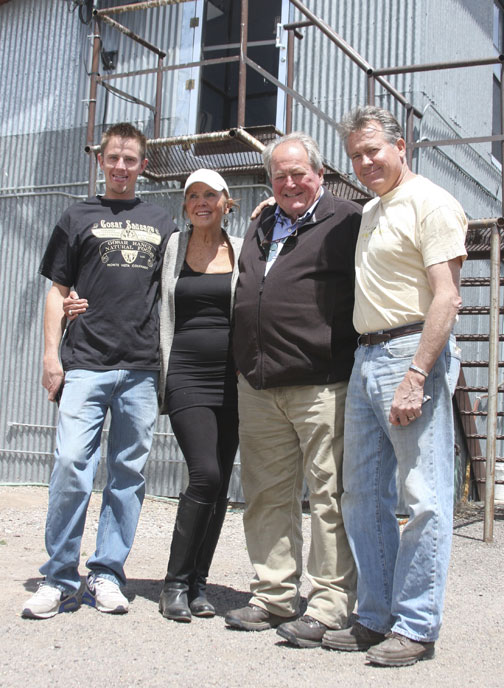
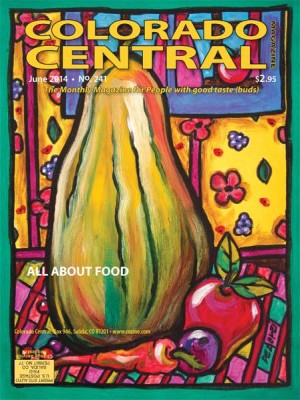
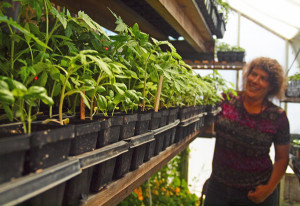

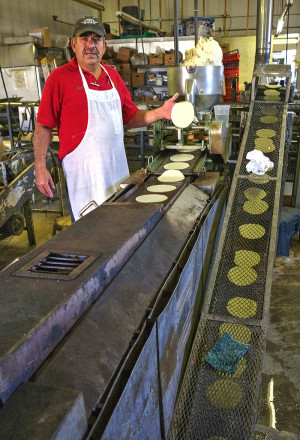
Hello,
Nice to see a down to earth healthy miller.
LocalMotive is collecting data about local food and in particular local “ingredients” for its Knowledge Portal. If you take a look at our website (LocalMotiveCo.com), under the Knowledge Portal tab you will understand what we are putting together. Could you tell me who is growing your wheat and is it GMO free and organic?
Thanks for your help and doing what you do to bring good food to America!
To answer Elise’s inquiry, all of our wheat is grown by local growers and is GMO free. It is always over 13% protein so that it will perform well for the baker without adding extra gluten (which seems to be creating digestive problems in some people). We grew our own wheat organically for 40 years. Our farm land was purchased by Eric Pfannenstiel who owns Rocky Mountain Hay Farms and continues to grow the wheat we buy from him organically. It is certified USDA Organic by Colorado Dept. of Agriculture.
Thanks for the opportunity,
Greg Gosar